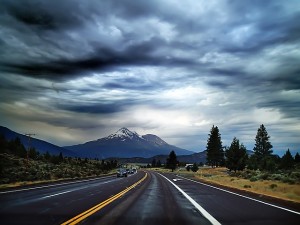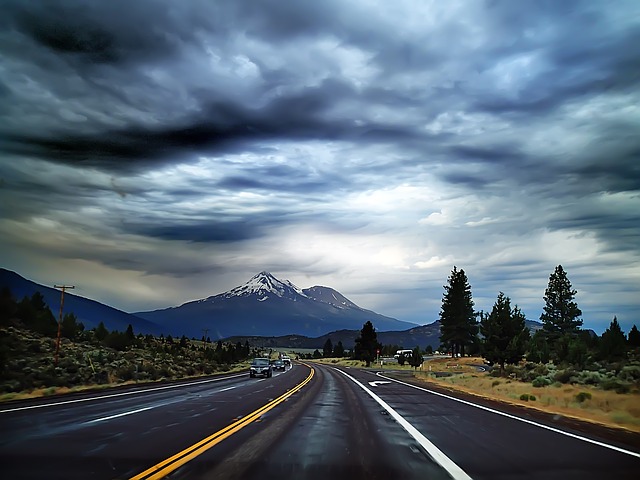 Spending long hours in the car with your siblings, listening to dad’s “awesome” mix tape of classic rock, and seeing the sights along the way makes you nostalgic for a family road trip.
Spending long hours in the car with your siblings, listening to dad’s “awesome” mix tape of classic rock, and seeing the sights along the way makes you nostalgic for a family road trip.
There are plenty of fantastic touristy destinations to take your family across the United States, but did you know there are thousands of equally amazing, educational destinations? The destinations that are chock full of great learning experiences through tours, workshops, and culture exchange.
The combination of a road trip plus education will really open the world to you and your family. The trip may reveal that learning isn’t only done in the classroom and it can be quite enjoyable since so much of it becomes a hands-on experience – it’s what some like to call “road schooling”.
Pack your bags, take time off from work, and buckle up.
Road Schooling: The What and How
The open road is the perfect environment to support education for a few reasons:
· There are long stretches of riding, which helps to keep focus on a piece of material
· Landmarks and points of interest along the way can be great moments to learn something new
· Non-fiction audiobooks make for an enjoyable, educational listening experience vs FM radio
What
What you’ll most likely want to do is to create some form of game with your family to encourage them to learn as they’re on the road and arriving at the destinations. You could develop a point system, much like grading, that rewards the individual who is able to retain and recall correct information and trivia about the destination.
Every inch of the United States has some history behind it; all that’s needed to find out is to ask the locals which are more than helpful in directing you to good information. The plus side to working with the locals is that you also get a heads up on great locations for lodging, dining, and entertainment so the entire experience is enjoyable while learning. Of course, the Internet is great for this, too!
There are plenty of different types of ways to integrate education into your travels:
- Geography – One idea would be to print out the maps of the journey, set waypoints, and then use Wikipedia as a resource for each of the geographical locations you pass. As you’re coming up to the area you could read a blurb and then do a quick quiz to see if the kids retained the information. One example would be driving through major locations of the Civil War where you could listen along with an history audiobook and mark off locations where famous battles took place.
- Culture Exchange – Culture is a big item worth learning because it unlocks a lot more than just the history of a people. One such example would be if the family were to drive through Chickasawcountry, which is a large area in Oklahoma that comprises the Chickasaw Nation. A stop into this area, for example, can let you and the family learn of the culture while also enjoying the various sights, sounds, and entertainment.
- Games – There many other great downloadable resources from the web that aren’t just lesson plans. The other options include educational games that integrate history. Games are a fun way to subtly introduce education to your children during the road trip while keeping them entertained (and not fighting with one another).
In all there are plenty of options if you’re keen to using the Web for research. Plan out the major part of the trip and then cycle back to see the sort of areas you are passing so you can pair the sight experience with an educational experience. Also, be sure to stop in and really take in the local culture rather than just to get a quick snap-shot for Facebook. You’ll learn a lot from those offering tours, workshops, and other events that aren’t just part of a guide book.
How
When it comes to education, the web is far ahead of you because the concept of “road schooling” is already a thing. Many, many teachers have taken to the Internet to release their lessons plans completely free to the public as downloads.
For example – you can find:
· Workbooks related to major landmarks and historical destinations around the States
· Short history guides to these similar locations
· Audio journals and video logs explaining the various points of interest
Load these onto your smart phone as you travel about and you will effectively keep the kids off their phone (texting) and more engaged with what’s going on around them.
Conclusion
What better way to bond with the family than through a road trip? Not only are you creating great memories but by learning along the way you are instilling a fascination to the World within your children. This fascination becomes passion and drive to learn all they can which will follow them throughout their studies and later life… and to think it could all start by stepping on the gas pedal.

Comments
7 responses to “An Introduction to “Road Schooling”: Education on the Open Road”
We do this every time we travel. My son, always the curious one, has a question for everything he sees on the road. 🙂
That is good. I remember growing up we would find letters on the road signs, signs, or other cars until we did the entire alphabet.
I love road trips and it’s always pretty easy to make it a little educational with a map!
Great idea. I know that with technology there are a bunch of kids who can’t even read a road map.
I’d be lying if I said that we hadn’t thought about this concept, living like nomads, seeing so many different places, and schooling our daughter on the road. Ultimately, I’m not sure if it’s for us, but definitely interesting to think about!
It’s not for us either but with homeschooling becoming a popular choice, it does give your family a bit more freedom.
My parents did a fair share of showing us things they learned growing up. I need to show my kids one day.